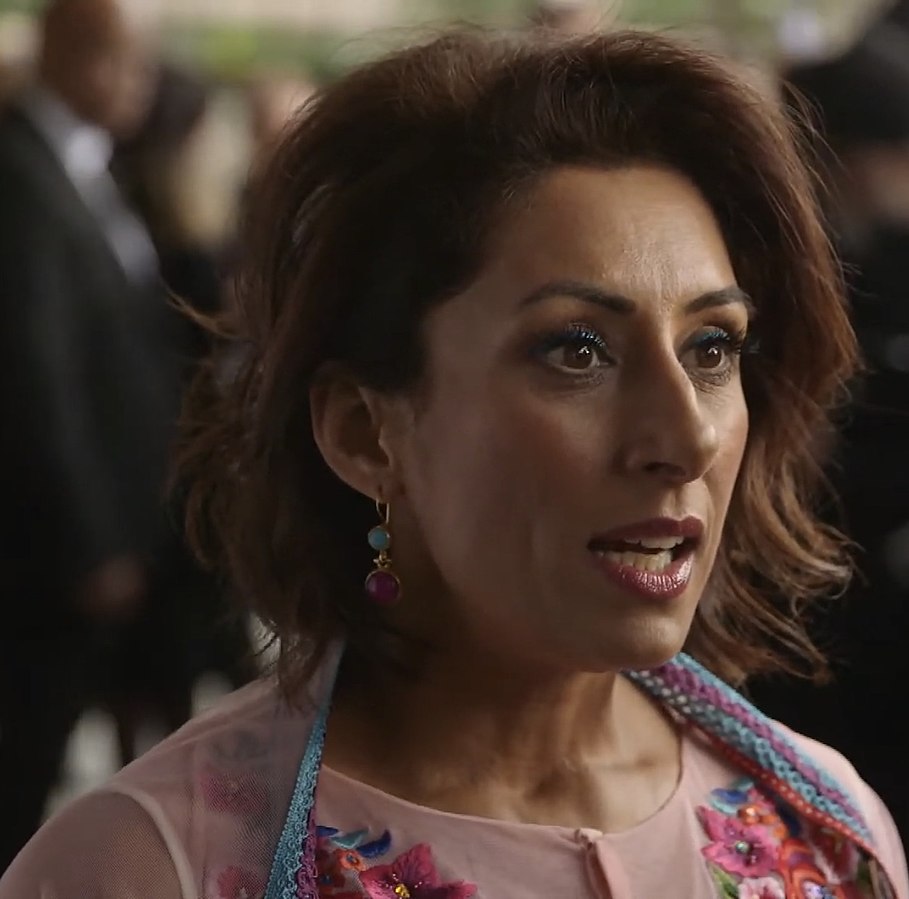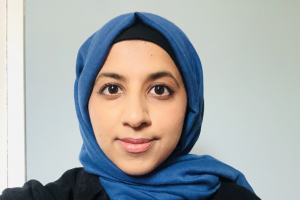By Khadija Khan
A historic occasion has been marked in the British Muslim community. Zara Mohammed, a 29-year-old Glaswegian, became the first woman to be elected as secretary-general of the Muslim Council of Britain (MCB).
The news was met with a lot of approval, particularly by women, and seen as a step in the right direction towards inspiring other Muslim women to take leadership roles.
It was all going well for Ms Mohammed, with all the complimentary articles about her in the papers. That is until she was asked a rather inconvenient question about Muslim women’s rights on a national radio programme.
She was asked by the Host Emma Barnett on BBC Woman’s Hour if there were any female imams in the UK. Barnett pressed Ms Mohammed several times before she eventually responded with: “I don’t feel like that’s within the parameters of my roles and responsibilities.”
People who were expecting the first-ever female leader in a male-dominated environment to take a firm stand for Muslim women’s rights may have listened to the interview in dismay.
Her inability to condemn the patriarchal set up that has long-held woman back from making progress in one of the largest British Muslim organisations – which claims to represent 500 mosques – was staggering.
What was even more extraordinary was how the journalist was immediately denounced as being “Islamophobic” and “racist”, simply for asking legitimate questions about women’s rights in Islam.
Inequality lead Faiza Shaheen not only hurled around accusations of being “Islamophobia”, but also ran an organised campaign to get the host Emma Barnett in trouble at her workplace. As Shaheen’s goals are to tackle inequality, surely there’s no better place to start than within her own community? Baroness Sayeeda Warsi branded the question as a “bizarre and ill-informed line of questioning.”
And rather appallingly, British Muslim comedian and TV presenter Adil Ray tweeted: “Why question a minority community and a recently appointed female representative?” This is the same Adil Ray who has been accused of making Muslims look bad in his comedy show Citizen Khan. One would think Ray would know better than to jump on the bandwagon.
It is a sad state of affairs how such people are quick to call out inequality and injustice in some areas, and yet when it comes to the abuse of women’s rights perpetrated in the name of Islam, they suddenly get very defensive or are in denial of the harsh realities of what it is like to live in such communities.
Instead, we saw a lot of mental gymnastics: the usual comments of ‘there is no priesthood in Islam’, therefore there is no comparison, and ‘there’s no hierarchy in Islam’.
Thank heavens, then, for British imam Ajmal Masroor being straightforward and admitting that in Islam, women aren’t allowed to lead mixed prayers between men and women.
He said: “The answer is simple. No, there are no female Imams equivalent to priests leading mixed congregational prayers. In Islam, men and women pray in a separate space and any mixed prayer congregation is always led by a man.”
So much for no hierarchy in Islam then.
In closed communities, women are always treated as second class citizens and are not seen as equals to men. In such circumstances, those women who rise up to the leadership role are expected (and rightly so) to take decisive and revolutionary measures to ensure that women’s voices are heard.
Whether male or female, whoever is in power is expected to be accountable for the policies they pursue. Making them immune to criticism is a cornerstone of authoritarian regimes. In a free society, such as Britain, the long-standing democratic tradition to hold to account people in top positions should be celebrated, even (perhaps especially so) in minority communities.
But, somehow, asking crucial questions to a female Muslim leader has become a ‘taboo’. They have been granted a certain position of privilege where nobody can question their incompetency to condemn deep-rooted misogyny in their own communities.
Take for example the incident involving US congresswoman Ilhan Omar. She was asked by the founder of Muslim for Progressive Values, Ani Osman-Zonneveld, if she and fellow congresswoman Rashida Tlaib would make statements condemning female genital mutilation, as it could be a “really powerful” statement to strengthen the campaign to eradicate the barbaric practice.
Being a progressive Muslim woman, Ms Osman-Zonneveld was seeking an alliance with the two Muslim women in power to protect girls and women from being mutilated. But as it happened, she was met with utter hostility by congresswoman Ilhan Omer who described the question as “appalling”.
She condemned FGM but said being asked this question was “frustrating and she was “quite disgusted”. And her hostile attitude was met with applause from the audience as well as from mainstream media outlets.
This poses the question that if Muslim women in power are not willing to condemn patriarchal norms and the blatant manifestation of misogyny in male-dominated Muslim societies, what hope is there for a change in the status quo for vulnerable women in Muslim communities? For how long will legitimate concerns about the violation of minority women’s rights be brushed under the carpet?
Although tremendous progress has been made in terms of women rights in modern day Britain, it is still a long way to go for women of Muslim heritage.

Muslim women are still being exploited at Sharia councils, where they often go through an arduous process in order to get divorced from their husbands.
Sometimes the fear of being called ‘sell out’, ‘traitor’ and ‘Islamophobe’ prevents them from coming forward and challenging injustice committed in the name of religion.
This all boils down to the bias against women that manifests itself in different ways. And women who are willing to toe the lines set for them by established (male) leaders are welcomed with open arms. Perhaps that’s the reason so few of them challenge the male dominance – it’s a choice between ignoring some cases of women being mistreated in order to stay in power, or risk losing power by speaking out so boldly and fearlessly.
Women defying traditional religious roles are berated, tortured, ostracised – even met with death threats. Reality TV star and newspaper columnist Saira Khan announced recently that she has received death threats after revealing she is no longer a practising Muslim. She was also called a ‘racist’ and ‘white sell out’ for condemning the radicalisation of young Muslims.
She said: “I’ve not dared to share these feelings before because the very few Muslim women who have are called sinful and some have even been targeted with death threats.”
It is unfortunate (and perhaps hypocritical) that the same people who were offended over Ms Mohammed being questioned on radio were silent over the abuse Ms Khan has endured over the years for not complying with so-called Islamic modesty standards. Ex Muslims rarely get support from mainstream Muslims.
It shouldn’t have to be said, but people from Muslim backgrounds are not a monolith. They are comprised of a mish-mash of secularists, liberal reformists, illiberal conservatives and fundamentalists. It is only by having open and honest, even difficult, debates around the issues which plague our communities that we can navigate towards a progressive and positive direction.
However, the process of modernisation seems to have stagnated. Ironically, Muslim societies once encouraged enlightenment, tolerant behaviour, and scholarship has been taken hostage by radical ideas.
Now, however, there is a lack of willingness to test the confines of our religiously conservative communities.
It is imperative that this call for enlightenment does not just condemn extremism (though that is hardly a difficult task), but also liberalising society by embracing progressive values, empowering women, curbing the religious policing, being open to critical ideas, and finally, holding to account Muslim leaders – male and female.

Khadija Khan is a journalist and commentator based in the UK. You can follow her on Twitter.

